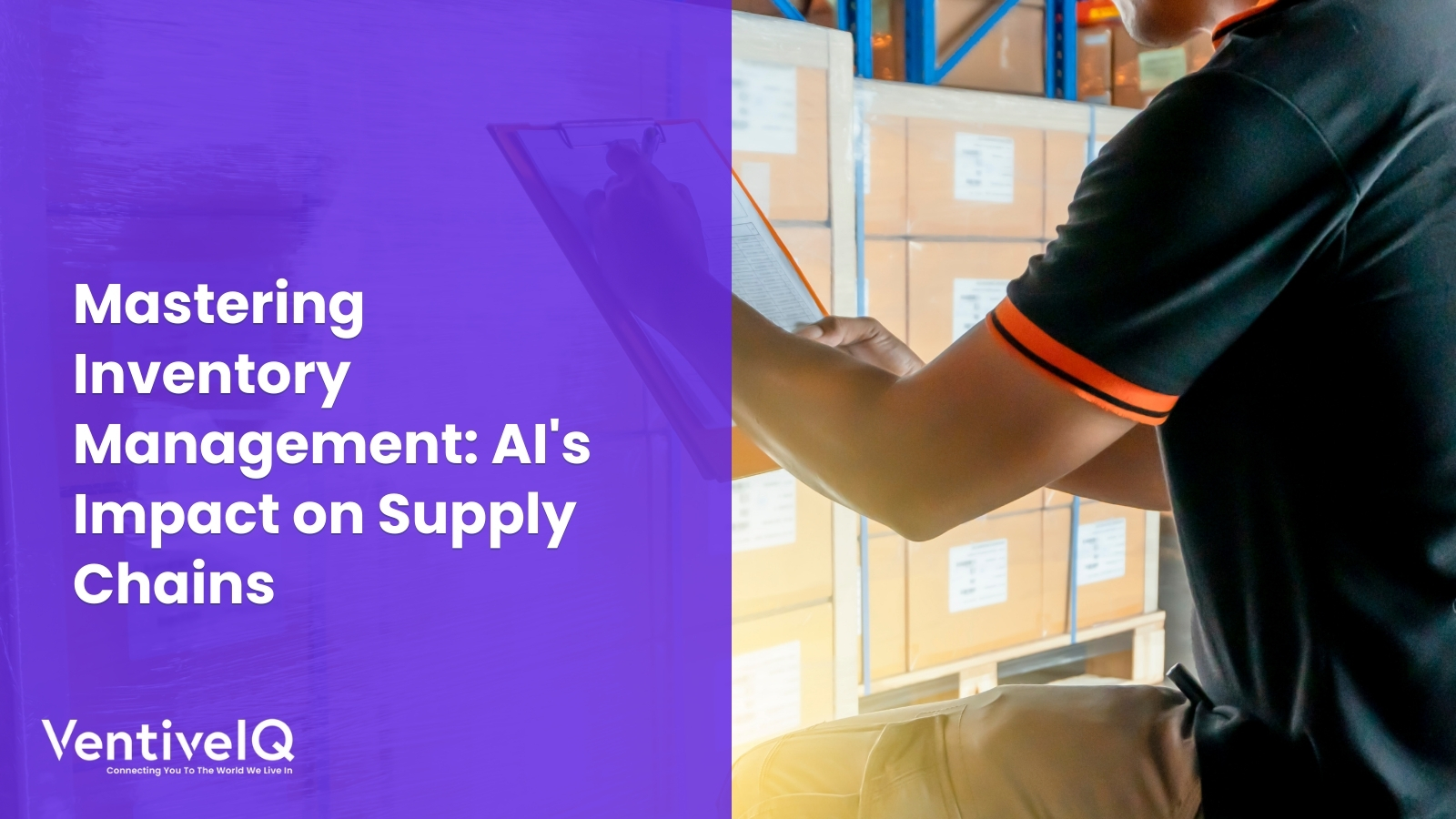Discover how AI technology revolutionizes inventory management, streamlining operations & optimizing supply chains. Learn about the impact & tradeoffs involved.
In today’s fast-paced business landscape, inventory managing can feel like a constant battle against chaos. Balancing stock levels, optimizing the supply chain, and streamlining operations are critical tasks, but manual processes and outdated systems often leave businesses struggling to keep their heads above water.
Introduction
Enter AI technology, a game-changer poised to revolutionize inventory management. By leveraging machine learning and predictive analytics, AI can transform the way businesses track, forecast, and manage their inventory, leading to significant improvements in efficiency, cost savings, and customer satisfaction.

But before diving headfirst into the world of AI-powered inventory solutions, it’s crucial to consider the impact. Like any powerful tool, AI comes with its own set of trade-offs and challenges. This blog post will explore the potential of AI in inventory administration, while also highlighting the key factors to consider when making this important decision.
The Importance of Inventory Management
Inventory management lies at the heart of any successful supply chain. It involves overseeing the flow of goods from supplier to warehouse to customer, ensuring that the right products are available in the right quantities at the right time. Effective inventory management not only prevents stockouts and overstock situations but also minimizes carrying costs and maximizes cash flow.
For businesses operating in today’s hypercompetitive markets, the ability to optimize inventory management processes is a strategic imperative. By leveraging AI technology, companies can gain insights into demand patterns, forecast future needs more accurately, and make data-driven decisions that drive operational efficiency.
Streamlining Operations with AI
Imagine a world where:
- Demand forecasting is no longer a guessing game. AI algorithms can analyze historical sales data, market trends, and external factors to predict future demand with remarkable accuracy. This empowers businesses to stock the right products at the right time, preventing stockouts and overstocking.
- Supply chain optimization has become a reality. AI has the capability to sift through large volumes of data to pinpoint bottlenecks and inefficiencies within the supply chain. This allows businesses to optimize their logistics, reduce transportation costs, and ensure timely delivery of goods.
- Inventory levels are automatically optimized. AI can continuously monitor inventory levels and suggest reorder points based on real-time data. This eliminates the need for manual inventory checks and reduces the risk of stockouts and holding costs.
- Operational efficiency soars. AI-powered systems can automate repetitive tasks like order processing, data entry, and reporting. This frees up valuable employee time and resources, allowing them to focus on higher-level tasks.

The Positive Impact of AI in Inventory Management
The advantages of using AI for inventory management are unquestionable. By simplifying complex processes, optimizing operations, and improving decision-making, AI can have a significant positive impact on businesses in a variety of ways:
- Increased profitability: Reduced costs, improved efficiency, and optimized inventory levels lead to higher profit margins.
- Enhanced customer satisfaction: By preventing stockouts and ensuring timely deliveries, AI helps businesses meet customer expectations and build trust.
- Improved competitiveness: AI-powered inventory management gives businesses a competitive edge in the marketplace.
- Reduced environmental impact: Optimized inventory levels and streamlined logistics can lead to a smaller carbon footprint.
Considering the Trade-offs
While the potential of AI is vast, it’s important to remember that it’s not a magic bullet. Implementing AI solutions requires careful consideration and planning. Here are some key trade-offs to keep in mind:
- Cost: Setting up and keeping AI systems operational can be costly, particularly for smaller businesses.
- Data quality: The effectiveness of AI algorithms depends on the quality of the data they rely on. Make sure your data is accurate, comprehensive, and current to maximize results.
- Change management: Implementing AI can disrupt existing workflows and require employee training. Effective change management is crucial.
- Ethical considerations: AI algorithms can perpetuate bias if not carefully designed and monitored. Ensure your chosen solution adheres to ethical guidelines.
Supply Chain Optimization: A Competitive Edge
In today’s global marketplace, supply chain optimization is not just a buzzword – it’s a competitive necessity. Companies that can effectively optimize their supply chains gain a significant edge over their rivals, reducing costs, improving customer satisfaction, and fostering long-term business growth.
AI technology plays a pivotal role in supply chain optimization by enabling businesses to:
- Be prepared for changes in demand and take proactive steps to adjust your inventory levels accordingly.
- Identify inefficiencies and bottlenecks within the supply chain and implement targeted improvements.
- Enhance collaboration and visibility across the entire supply chain ecosystem, from suppliers to distributors to end customers.

The VentiveIQ Perspective
At VentiveIQ, we believe that AI has the power to transform inventory management for the better. We are committed to developing ethical, transparent, and user-friendly AI solutions that are accessible to businesses of all sizes. We understand the challenges and trade-offs involved, and we work closely with our clients to ensure smooth and successful implementation.
Conclusion
AI technology holds tremendous promise for revolutionizing inventory management and supply chain optimization. By leveraging advanced algorithms and predictive analytics, businesses can streamline operations, enhance decision-making, and gain a competitive edge in today’s dynamic marketplace. However, the successful implementation of AI requires careful consideration of the broader impact on society, ethics, and the environment. As businesses embrace AI-driven solutions, they must prioritize transparency, fairness, and sustainability to ensure that technology serves as a force for positive change.
